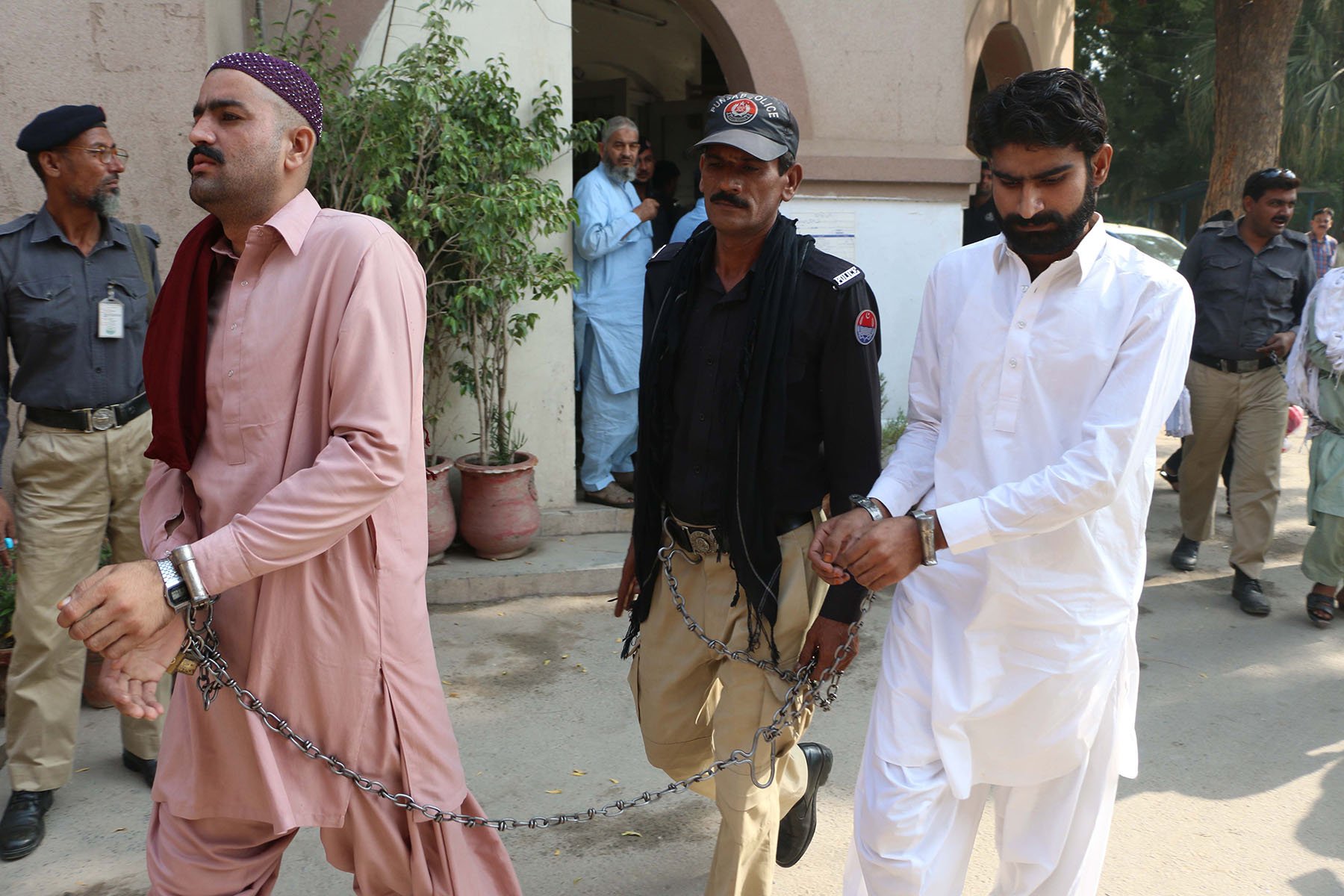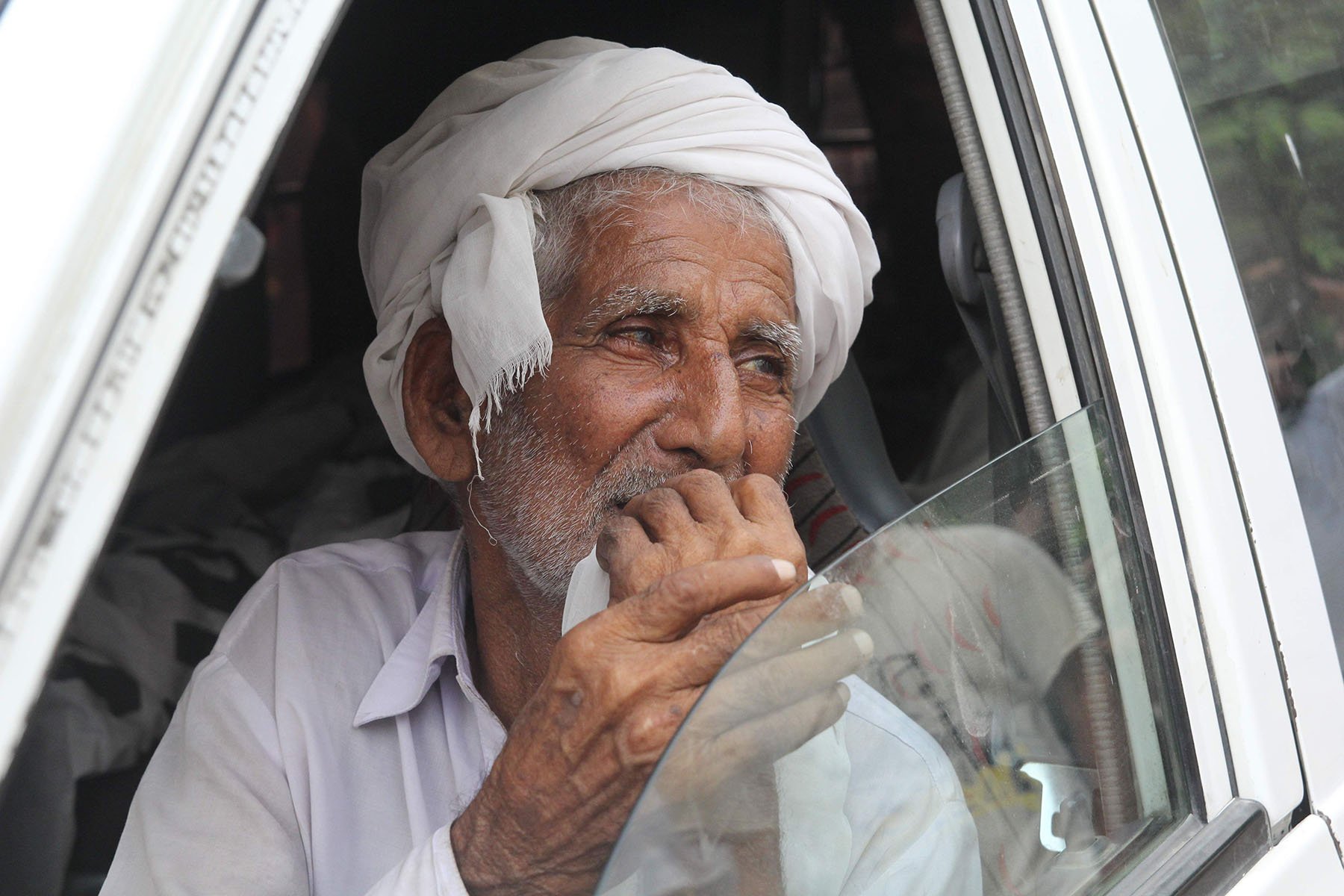The court proceedings of Pakistan’s social media star, Qandeel Baloch, are headed down the same path as that of all other cases of so-called honour killings. Last week, the plaintiffs — the parents — filed an affidavit to forgive their son, Waseem, the prime accused in the murder case.
Previously, Baloch’s ageing parents had insisted on seeing their son prosecuted for the crime. But they are now backtracking.
In his recent application, the slain starlet’s father, Azeem Khan, sought to pardon his son. In fact, he further added that Waseem was wrongly accused. “He was present in the room, but he did not kill her,” Khan told Geo.tv, “The real killer is Haq Nawaz.”
An autopsy report revealed that while Waseem choked his sister, another person had pinned down her legs. Days after the murder, Baloch’s cousin, Haq Nawaz, voluntarily gave himself up to the police and admitted to being in the room on the night of the killing.
Baloch was strangled to death at her home in Muzaffarabad, Punjab, on July 16, 2016. Her brother, Waseem, is on trial for the murder.
The parent’s affidavit is even more startling since in the first information report submitted by Khan, he held Waseem responsible for the murder. He also named his two other sons, Aslam Shaheen and Arif, who lives in Saudi Arabia, as accomplices and stated that an influential religious cleric, Mufti Abdul Qavi, instigated the murder. A few weeks before her killing, the 26-year-old had posted several controversial selfies with the cleric that led to him being humiliated and his membership of the moon-sighting committee revoked.
Separately, Waseem went on record and admitted to drugging and killing his sister when presented before a special magistrate.

Others arrested in the case include, Zafar, who publicly humiliated Waseem for his sister’s risqué online videos, and Abdul Basit, who was to help Waseem flee after the killing. (Basit is Mufti Qavi’s first cousin).
To date, there have been 55 hearings of the case. While Qavi was investigated, he is currently out on bail. And Arif, the eldest brother, can only be arrested when he returns to Pakistan. “Of the seven accused, only four have recorded their statements,” explained Muneer Masood, the city police officer Multan.
On September 18, Waseem’s lawyer filed a bail application, which was later rejected by Additional Sessions Judge Iqbal Dogar. However, his counsel, Sardar Mehboob, is adamant that he will be able to secure bail in the near future. “There is no witness mentioned in the FIR,” he tells Geo.tv, “It is not difficult to prove Waseem’s innocence.”

In 2016, three months after Baloch’s killing, Pakistan’s Parliament passed a law to close the loophole that allowed perpetrators of honour killing to walk free if forgiven by the family. The new legislation made it mandatory for those convicted to serve at least 12 years in jail and it further made the state a plaintiff in such cases.
Yet, the recent affidavit has complicated the trial and could possibly deny Baloch justice. “Forgiveness is where such cases usually end,” says Bilal Butt, a senior advocate of the Supreme Court of Pakistan, “In this case, the father, Azeem Khan, is the petitioner and a witness. Now the state does have the option, under section 311 of the Pakistan Penal Code, to sentence the murderer to 14 years or even life imprisonment even after being pardoned by the family.” However, the state has never used this privilege, he adds.
Back at the small, rented home, where Baloch’s parents live, her father maintains that he and his wife are not backpedalling. “We have not forgiven Waseem, but after losing a daughter we do not want to lose a son.”
Cover photo: File photo taken on June 28, 2016, shows Pakistani social media celebrity Qandeel Baloch arriving for a press conference in Lahore - AFP


